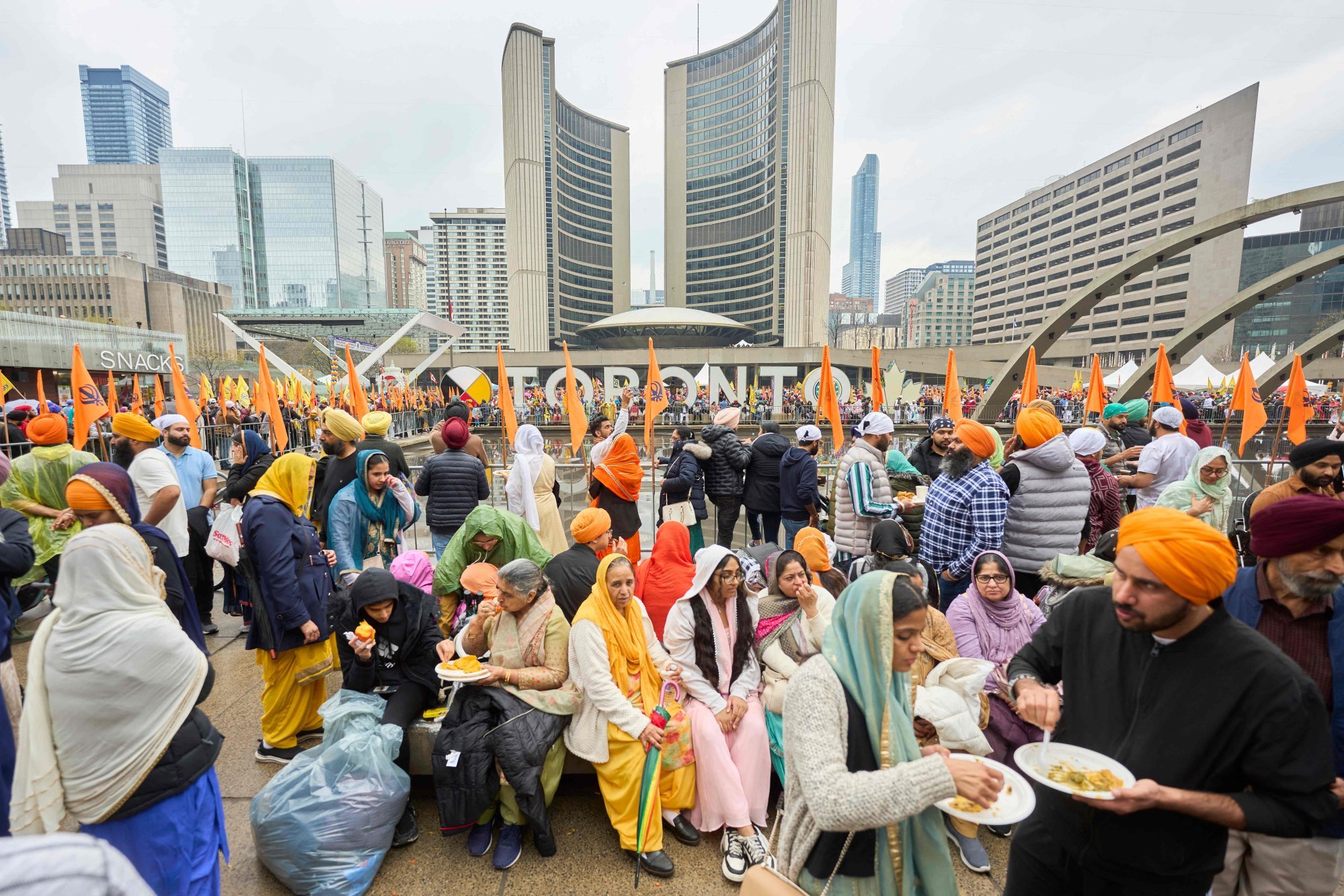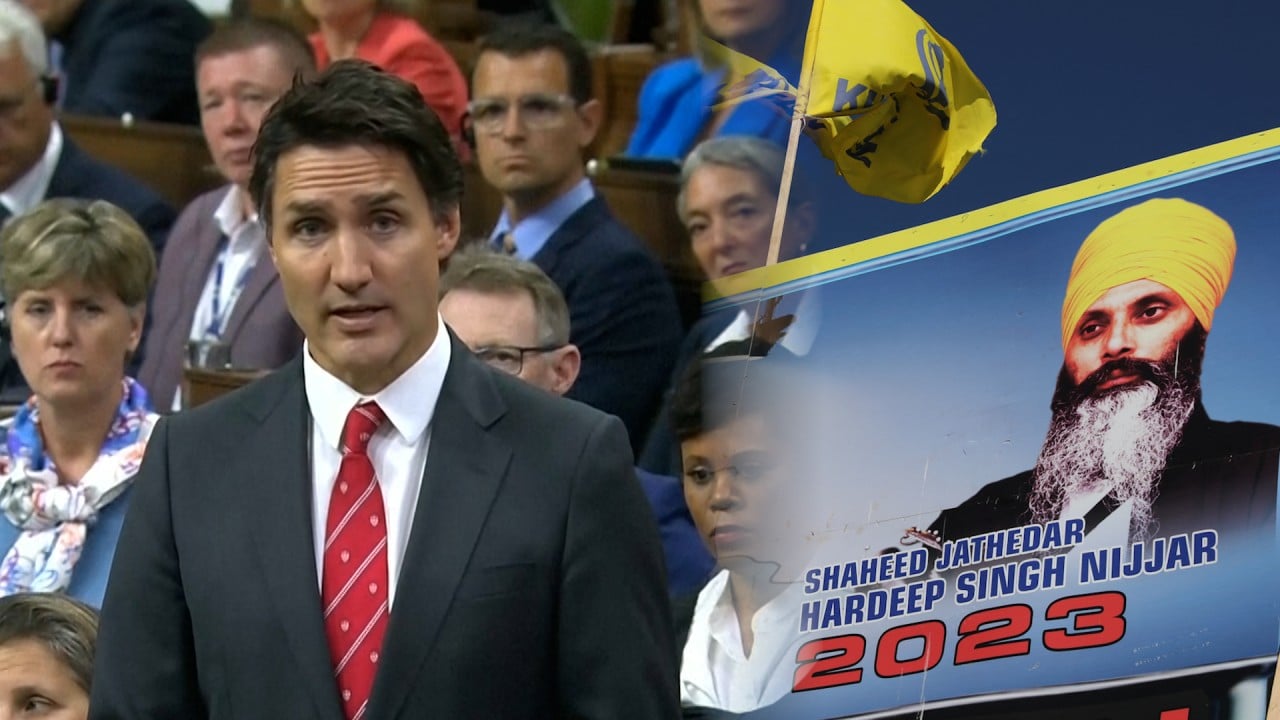
Trudeau’s presence at Sikh rally further inflames India ties as Canadian PM accused of ‘encouraging climate of violence’
- India summoned the Canadian deputy high commissioner after ‘Modi Wanted’ banners were reportedly hoisted at a Toronto event addressed by Justin Trudeau
- Analysts said Trudeau’s perceived support for the Khalistan movement despite repeated objections would dissuade New Delhi from repairing relations with Ottawa
Analysts say Trudeau’s move showed “no appreciation of Indian concerns in Canada”, with the seemingly ill-advised visit expected to further put off New Delhi from ironing out ties with Ottawa.
‘Watch your back’: Sikh diaspora fears for safety after killing of separatist
Nijjar was part of a movement to create an independent Sikh homeland known as Khalistan that had rocked northern India’s Punjab state in the 1980s and early 1990s. Today, the advocates are mostly among Punjabi overseas diaspora, many of whom are settled in the North American nation. India has often complained to Canada about the activities of Sikh hardliners.
Indian intelligence agencies were also alarmed by the presence of “Modi Wanted” banners allegedly put up at the Toronto gathering by secessionist group Sikhs For Justice (SFJ) in response to Nijjar’s killing, The Times of India reported.
While New Delhi has repeatedly blamed Trudeau for failing to reign in Khalistani separatists and playing “vote bank politics” with the Punjabi diaspora, observers were divided over whether the government overreacted with an eye to gain votes in ongoing Indian elections.
“There will be no immediate impact [on India from the rally], but the point is that there is no appreciation of Indian concerns in Canada as far as Trudeau’s party is concerned,” said Harsh Pant, a professor of international relations at King’s College London.
“What it signifies is this is going to be a long term problem.
“So long as Trudeau is there, there is no appetite in India to move forward on big ticket items or revamping relations. Trudeau has also given no indication that he wants to recalibrate domestic politics.”
The Khalistan campaign has little resonance in India including Punjab which at its peak in the 1980s led to a surge in separatist violence. Former Indian prime minister Indira Gandhi was assassinated by two of her Sikh bodyguards in 1984, several months after she ordered the storming of the Golden Temple in Punjab, the holiest site in Sikhism, to flush out insurgents.
Fuelled by ‘shared interests’, US-India ties ‘here to stay’ despite incidents
Stoking the embers
“Trudeau knows the Khalistan issue is extremely damaging for Canada-Indian relations,” said Christopher Blackburn, a British political and security analyst, citing the bombing of an Air India flight in 1985 by Canadian Sikh terrorists to underscore the sensitivity of the matter.
“Any prime minister must be careful about attending political rallies,” Blackburn said.
He said that Trudeau could have met the community’s leaders in controlled environments such as a gurdwara (Sikh temple) to ensure “embarrassing spectacles are less likely to happen”.
“Trudeau and his advisers are to blame. Canada and India need to come up with a joint mechanism for monitoring the Khalistani threat,” Blackburn said, suggesting Ottawa needs to apologise to New Delhi for being seen to endorse “radical elements”.

But Manoj Joshi, a distinguished fellow at the Observer Research Foundation, said India could have avoided reacting sharply to the issue.
“The point is does this movement have any specific impact on India ?” Joshi said.
“My assessment is it is probably aimed more at domestic political gains among the large electorate [in India],” he said.
He added that the response was also to convey Prime Minister Narendra Modi’s government has been “proactive against the Khalistan movement”.
Modi and his ruling Bharatiya Janata Party are in pole position in India’s seven-phase elections that run till June, according to opinion polls.
Deepfakes of Bollywood stars flood Indian election in political narrative war
Pant of King’s College said though the Khalistan movement has receded to the margins over the years in India, New Delhi’s concerns over the group were legitimate, given its past activities.
Thousands of students from the South Asian nation attend college programmes every year in Canada that is also home to a large Indian diaspora.
Priyajit Debsarkar, mentor at Bridge India Foundation, said it was in Ottawa’s interest to prevent the relationship from turning cold.
Others said that the row over the separatist movement has not affected people-to-people exchanges between the two countries, but could do so if the issue continues to fester.


